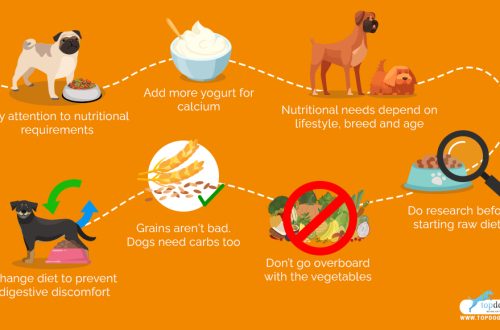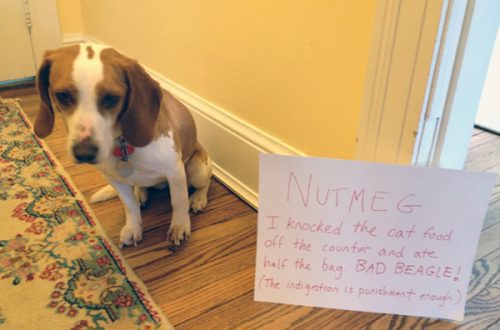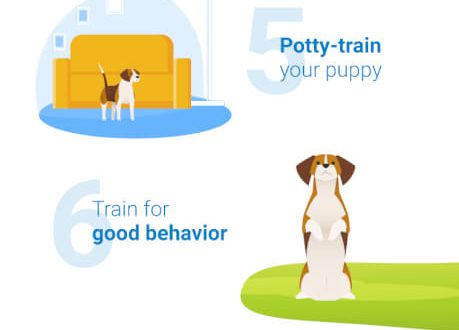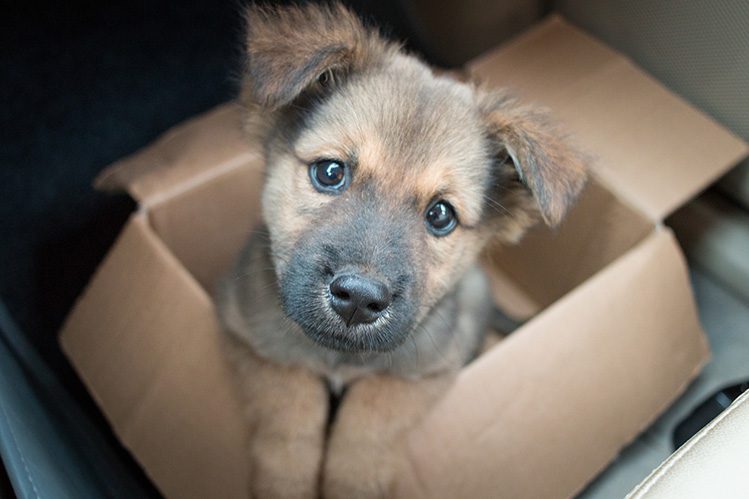
Picked up a puppy from the street: what to do next?
If you decide to take a puppy from the street, then you are a real hero. But be prepared for the fact that taking care of a new pet is the beginning of a big job that will require patience, discipline, attention to the baby and financial costs from you. Since you have adopted a homeless puppy, this is your chance to grow a true friend out of him, who will be grateful that it was you who became his owner.
- First – to the veterinarian
Are you eager to give the foundling a home comfort? Wait, safety must come first. Since the baby survived in extreme conditions, then for sure he did not have a suitable diet or shelter. Most likely during this time the poor thing got fleas and worms. You picked up a puppy from the street and do not know if he is healthy, if he will infect you. It is especially dangerous to carry it home immediately if you already have other pets.
The purpose of the initial veterinary visit is to make sure that the dog is not sick, does not need urgent medical attention. The doctor will examine the mucous membranes and skin, take tests for infections. On the first day, you can treat your pet from parasites. But the drug must be prescribed by a doctor. If you are going to bathe your puppy tomorrow or the day after, then it is better to choose a remedy for parasites in the form of tablets, and not drops on the withers. The main thing is that the drug is suitable for the puppy in terms of age and weight. Be careful with this! Consult your doctor on this matter.
The veterinarian will determine which tests for infections to take. Among the minimum required for puppies are an analysis for parvovirus enteritis, canine distemper, dirofilariasis and leptospirosis. If you pick up a puppy from the street, there is a risk that he will be found to have these diseases. The sooner they are treated, the greater the chance of recovery.
Ask the specialist at the first appointment to determine the age of the puppy. This knowledge will help in choosing food, medicines and pet care products. If the doctor at the first meeting with the puppy does not reveal deviations from the norm, then you can safely go home with him. Otherwise, the doctor will prescribe the necessary treatment and instruct what medicines to buy and how to give them to the baby. It is better not to bathe a puppy on the first day, as he has already experienced a stressful situation. Washing is better to transfer the next day.

- Quarantine under supervision
Free movement in the new home for the puppy will begin with two to three weeks of quarantine. During this time, the results of tests for infections will come, and the new owner will be able to collect important information about the behavior and well-being of the new family member. This information will make your next trip to the veterinarian as efficient as possible. During the weeks of quarantine, the puppy may develop diseases that will end the incubation period.
Quarantine is understood as a place of temporary detention in which there are no other animals. If there are no other dogs and cats in the house, consider the issue resolved. If you already have a pet living with you, you can quarantine your puppy at the home of close relatives who do not have pets, or at a veterinary clinic. Suspicion of rabies is a good reason to quarantine a puppy at an animal disease control station.
The presence of any other pets in your home obliges you to allocate a separate room for the quarantine of a new tenant. Spend a few hours a day with your new friend. So you will collect an anamnesis – data on the well-being, behavior, habits of the animal. Your veterinarian will need this information for diagnosis, treatment options for your pet, and prevention.
After contact with a quarantined puppy, wash your hands thoroughly with soap and change clothes. The baby should have individual bowls for food and water, as well as brushes and other care products, their own toys.
Toys will help the puppy escape from stress, get used to an unfamiliar place. Look for special dog toys available at pet stores (such as the great puppy toys from KONG and Petstages). Such toys are made of high quality materials and are designed to be chewed and licked by dogs without harm to health. During the game, you can get to know your pet better, make contact, make friends. And it will be easier for the puppy to get used to the owner and feel trust in him. This will help a lot when you begin to train him to respond to a nickname and follow simple commands.
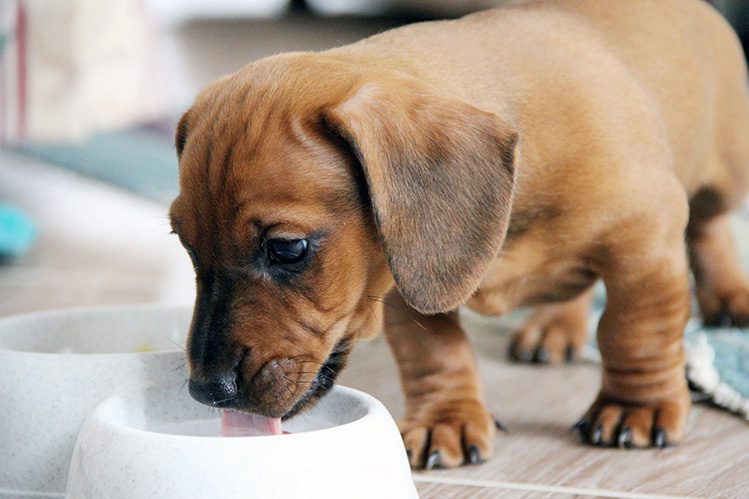
- Vaccinations, medical examination
Have you adopted a homeless puppy, visited the vet and kept the pet in quarantine? So, the time has come for medical examination – a thorough medical examination of the body. At this point, you need to get a comfortable carrier so that going to the doctor is comfortable for the puppy.
At this stage, it is important to identify diseases that even an experienced doctor can miss during the initial examination. The specialist will tell you how and with what to treat the animal, and make a prognosis for the development of the disease or pathology.
The puppy is waiting for an examination by a therapist, an ultrasound of the abdominal organs, possibly also an x-ray, general and biochemical blood tests, a medical consultation based on the results of a medical examination.
When the puppy is two months old, it’s time to get vaccinated. The veterinary specialist will mark the vaccinations on your pet’s special passport and provide you with a vaccination schedule that you will need to follow.
- Calculate the diet
Already on the first day, you will be faced with the question of what to feed the puppy. Be sure to ask your veterinarian about this. Puppies under the age of one month are best suited for special formulas for feeding. You can cook meals for two days, then divide into portions and heat up to 38 degrees. You can feed through a baby bottle with a nipple. Watch carefully so that the pet does not swallow air and suck out food on its own.
Older puppies need to choose a diet option – ready-made food or natural food. You can’t mix, alternate them, because of this, the pet can get sick. In the composition of the finished feed, the first ingredient should be meat. Avoid feed with offal and unprescribed composition.
For natural nutrition, lean boiled beef is perfect, add vegetables and herbs to it. Make sure your puppy has enough clean water in his drinking bowl. Dairy products (cottage cheese, curdled milk, kefir) are also an important part of the diet. It is better to calculate the diet for a pet with the help of a veterinarian and remember that with a natural type of feeding, a puppy needs special vitamins.
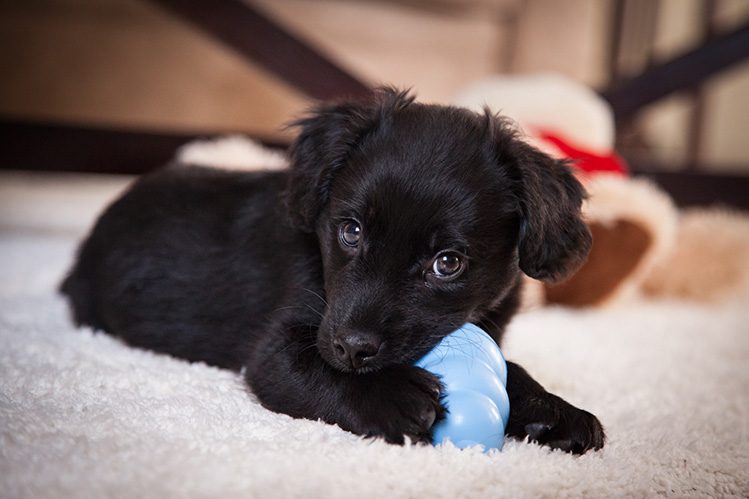
- If there is no time
Cynologists say that if you do not have time for a dog, then you do not need to get one. This is a living being that needs communication, kindness, care. Walking, eating, hygiene, going to the veterinarian should be part of your life, and the puppy should be part of your family. No matter how much you want to take a pet here and now, this decision should be considered. But if you do decide and realize your responsibility, there are ways to save some time and effort.
If you don’t have much time to prepare puppy food, choose ready-made food, we have already talked about this. If your thoughts about taking a puppy off the street are not related to a specific animal, you can simplify your task and save time. Veterinarians advise contacting animal shelters, where the necessary vaccinations have already been made for all pets and a minimum of documents have been issued. In this case, you can get reliable information about his health and behavior from the curator of the animal. In the future, to educate and train a puppy, involve professional cynologists or sign up for special courses. This will help to avoid many mistakes in building the owner-pet relationship and will protect you from problems with raising a dog.
Always remember that gathering background information is not a substitute for a visit to a veterinarian. We hope we were able to help you get started on caring for and caring for your new pet. Thank you for your kindness, and strong friendship to your team!



